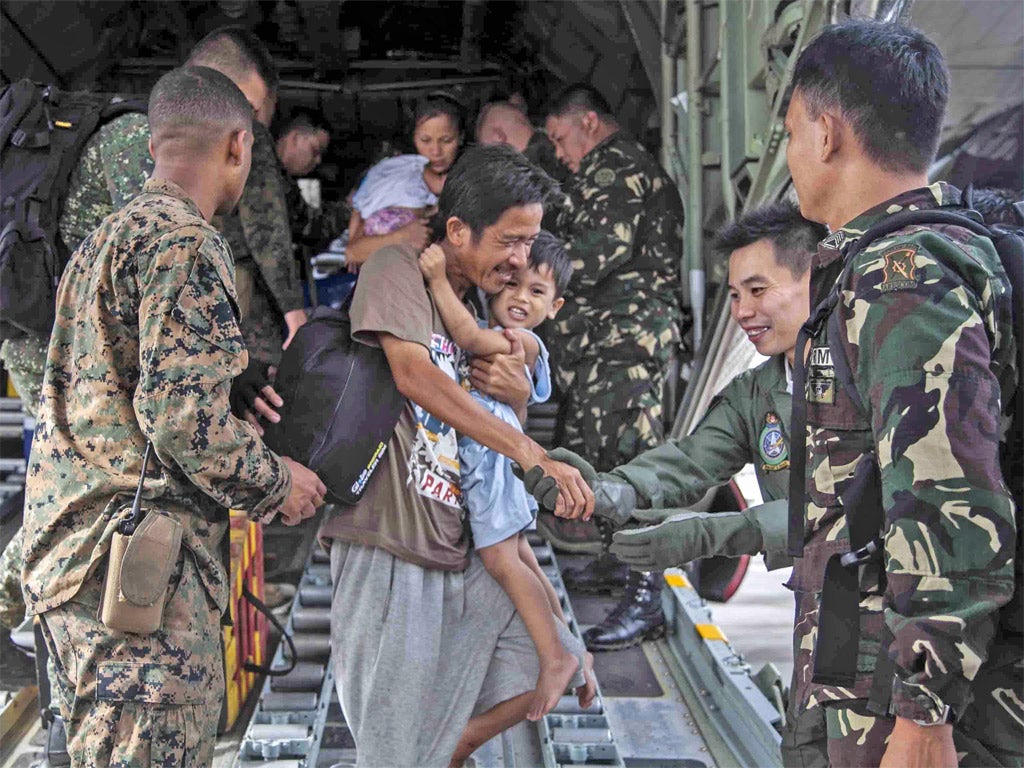Scant relief: China has pledged only £125,000 to help the Philippines recover from Super Typhoon Haiyan
Richard Hall examines the reasons for the world's second-largest economy's woeful aid donation

Your support helps us to tell the story
From reproductive rights to climate change to Big Tech, The Independent is on the ground when the story is developing. Whether it's investigating the financials of Elon Musk's pro-Trump PAC or producing our latest documentary, 'The A Word', which shines a light on the American women fighting for reproductive rights, we know how important it is to parse out the facts from the messaging.
At such a critical moment in US history, we need reporters on the ground. Your donation allows us to keep sending journalists to speak to both sides of the story.
The Independent is trusted by Americans across the entire political spectrum. And unlike many other quality news outlets, we choose not to lock Americans out of our reporting and analysis with paywalls. We believe quality journalism should be available to everyone, paid for by those who can afford it.
Your support makes all the difference.When images of destruction and chaos begin to emerge in the wake of a natural disaster, pledges of aid and financial support from the international community usually follow. But politics can often get in the way and even damage on the scale of that which was wrought by Super Typhoon Haiyan in the Philippines this week is sometimes not enough to prompt a softening of a difficult diplomatic relationship between two countries.
A case in point: China, the world's second-largest economy, yesterday announced that it would send $200,000 (£125,000) to help with the relief effort in the Philippines. Compare that with $16m pledged by the UK, the $4m by the Vatican, Japan's $10m and New Zealand's $1.7m, and the offer begins to looks less like a gesture of goodwill and more like a slap in the face.
China's Foreign Ministry spokesman Qin Gang said his country would consider more aid as the situation developed, but did not say why Beijing had offered less than other nations.
"China has also suffered from the disaster, so we very much understand and sympathise with the current hardships that the Philippine people are facing," Qin told a regular briefing, referring to the deaths of at least seven people and $734m in economic losses when the much-weakened storm swiped China's southern provinces.
The lacklustre response from the powerful Asian nation has not gone unnoticed at home. Many Chinese people have been glued to their televisions watching the aftermath of the mighty storm, which was close enough to home to affect many of them. The Global Times, not known for friendliness towards other nations, headlined an editorial with "Island spat shouldn't block typhoon aid". It wrote: "Current island disputes are only a brief moment of history." The dispute "deserves our serious attention, but shouldn't stop us from doing what it necessary".
Although the response from Chinese internet users was mixed, there was no lack of sympathy for the victims. "May the dead rest in peace," several bloggers posted on popular social-media blogging site, Weibo, in response to a series of photos from the hard-hit area of Tacloban.
The reason for its woeful donation is not that China is less caring – it gave nearly $5m to help Pakistan recover from an earthquake two months ago – but is due to a collection of rocky islands in the South China Sea. Both nations stake a claim to the rocks and China has in recent months become more assertive in solidifying its control over the islands. Last month, its navy blocked Filipino fishermen from entering the contested waters.
China is not the only one to put politics before relief. The politicisation of aid is an area of intense debate in disaster management.
"People assume that the world sets aside its political wrangling and help each other out at times of disaster," says Dr Lucy Easthope, a disaster-management specialist at the University of Lincoln. "It isn't like that at all. It almost always comes with strings attached. It's hugely political."
On occasion, poor relations between nations can lead to a refusal of much-needed aid in the aftermath of a disaster. After Hurricane Katrina, Cuba offered to send 1,586 doctors and 26 tons of medicine for relief. The offer was declined by the State Department. The UK in the past been hampered by tricky relations with countries bearing the brunt of a disaster.
And is it all down to numbers? When it comes to humanitarian aid, the US is the largest donor, with an estimated $3.8bn last year. But it is also the richest. Some might argue that China, as a developing country blighted by poverty itself, should not be compared with Japan and the UK in terms of the amount it gives. Luxembourg gave the most in humanitarian aid last year as a percentage of GDP (0.16 per cent). Sweden and Turkey came second and third respectively.
Join our commenting forum
Join thought-provoking conversations, follow other Independent readers and see their replies
Comments